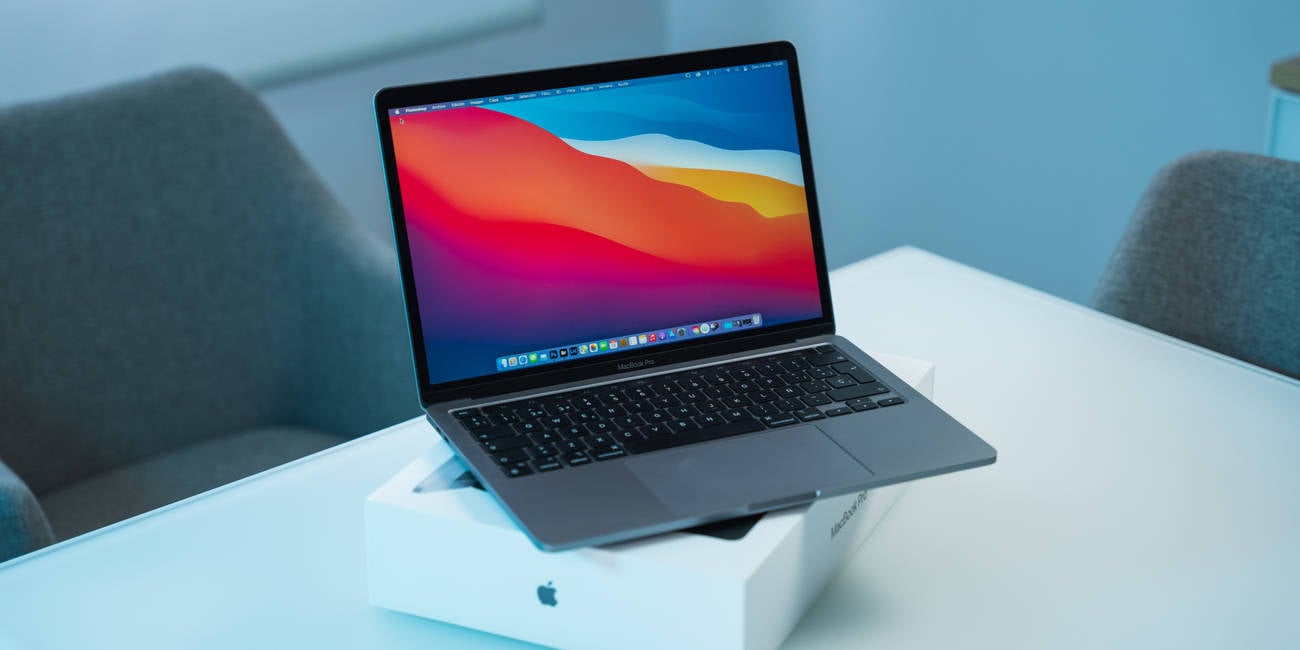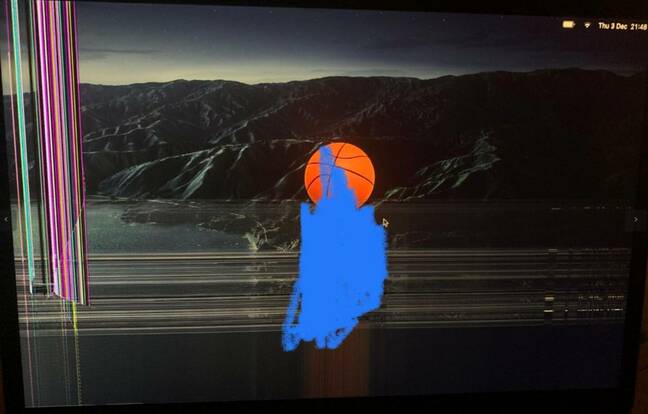Apple's M1 MacBook Screens Are Stunning – Stunningly Fragile And Defective, That Is, Lawsuits Allege

Aggrieved MacBook owners in two separate lawsuits claim Apple's latest laptops with its M1 chips have defective screens that break easily and malfunction.
The complaints, both filed on Wednesday in a federal district court in San Jose, California, are each seeking class certification in the hope that the law firms involved will get a judicial blessing to represent the presumed large group of affected customers and, if victorious, to share any settlement.
Each of the filings contends Apple's 2020-2021 MacBook line – consisting of the M1-based MacBook Air and M1-based 13" MacBook Pro – have screens that frequently fail. They say Apple knew about the alleged defect or should have known, based on its own extensive internal testing, reports from technicians, and feedback from customers.
"[T]he M1 MacBook is defective, as the screens are extraordinarily fragile, cracking, blacking out, or showing magenta, purple and blue lines and squares, or otherwise ceasing to function altogether," says a complaint filed on behalf of plaintiff Nestor Almeida [PDF]. "Thousands of users from across the globe have reported this issue directly to Apple and on Apple sponsored forums."
The other complaint [PDF], filed on behalf of plaintiffs Daphne Pareas and Daniel Friend, makes similar allegations.
"The Class Laptops are designed and manufactured with an inherent defect that compromises the display screen," it says. "During ordinary usage the display screens of the Class Laptops (1) may become obscured with black or gray bars and/or 'dead spots' where no visual output is displayed and (2) are vulnerable to cracks that obscure portions of the display. The appearance of black or gray bars on screen may precede, accompany, or follow cracks in the display glass."
The Almeida complaint says thousands of Apple customers from around the world have reported MacBook screen problems to Apple and in online forums. It claims Apple has often refused to pay for repairs, forcing customers to pay as much as $850 through outside vendors. And where Apple has provided repairs, some customers have seen the problems return.
- No, no, let's hear this out, says judge waving away Apple's attempt to kill MacBook Pro Flexgate lawsuit
- Apple iPad torched this guy's home, lawsuit claims
- Remember Apple's disastrous butterfly keyboards? These lawsuits against the iGiant just formed a super class action
- Apple hit with another faulty hardware lawsuit – this time it's the Watch
Apple, the Almeida complaint alleges, failed to acknowledge the issue, despite its own internal testing and user complaints, until August 27, 2021.
That's when Apple – "perhaps sensing the onslaught of litigation" – posted a support note advising customers who use a camera cover, palm rest cover, or keyboard cover to remove the accessory before closing their MacBook to avoid damaging the screen.
"Leaving any material on your display, keyboard, or palm rest might interfere with the display when it's closed and cause damage to your display," Apple's warning says.
But the complaint points to a litany of social media complaints that suggest screen problems occur regardless of careful laptop closure.
The Pareas/Friend complaint also includes a lengthy list of social media citations about M1-based MacBook screen troubles, like this Reddit thread and this 14-page thread on Apple's discussion forum titled "MacBook Air M1 screen crack for no apparent reason."
Here's one example from Apple's discussion forum:
And there are enough of these tales posted online for the dispute to end up in court.
Both complaints hold Apple's effusive marketing against it.
"[Apple's] marketing materials for the thin and lightweight Macbook Air extol its superior materials and durability," the Pareas/Friend complaint says. "Per its product webpage, the device is 'Thin and Light. Yet rock solid,' and its 'sturdy aluminum unibody design makes MacBook Air sleek, durable, and ready for anything.'"
The filing argues that "[h]ad Apple disclosed the truth, for example in its advertisements or other materials or communications," customers would have looked elsewhere or would have paid less.
The Almeida complaint meanwhile throws Apple's insistence that "everything looks stunning on the 13-inch Retina display" of the 2020 MacBook Air back at the company, noting that not everything looks stunning when the screen cracks and blacks out.
The Register would love to know how Apple's marketing copy might read if free speech rights were curtailed and aspirational product descriptions had to cover worst case scenarios. We've asked Apple to comment, but – and you may be shocked to hear this – we've not heard back. ®
From Chip War To Cloud War: The Next Frontier In Global Tech Competition
The global chip war, characterized by intense competition among nations and corporations for supremacy in semiconductor ... Read more
The High Stakes Of Tech Regulation: Security Risks And Market Dynamics
The influence of tech giants in the global economy continues to grow, raising crucial questions about how to balance sec... Read more
The Tyranny Of Instagram Interiors: Why It's Time To Break Free From Algorithm-Driven Aesthetics
Instagram has become a dominant force in shaping interior design trends, offering a seemingly endless stream of inspirat... Read more
The Data Crunch In AI: Strategies For Sustainability
Exploring solutions to the imminent exhaustion of internet data for AI training.As the artificial intelligence (AI) indu... Read more
Google Abandons Four-Year Effort To Remove Cookies From Chrome Browser
After four years of dedicated effort, Google has decided to abandon its plan to remove third-party cookies from its Chro... Read more
LinkedIn Embraces AI And Gamification To Drive User Engagement And Revenue
In an effort to tackle slowing revenue growth and enhance user engagement, LinkedIn is turning to artificial intelligenc... Read more


